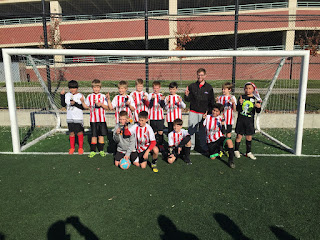Lifetime Experience!
I never thought that will have a chance to visit Africa. I am studying at Marymount for almost two years and I have seen so many flyers on a pin board on the wall in a hall way to my classroom. There were lots of global education trips to Europe, New Zealand, and South America. I thought that I might be able to join one of the trip if time allows.
I finished all
the course work for my degree except student teaching in the Fall 2016 so I had
an opportunity to look at elective courses for this Spring. I heard about ED
526 Cross-Cultural/International Curricula that would visit a classroom in
Uganda. I decided to join this course right away.
Eight people signed
up for our course to go to Uganda which was just enough to make the trip
happened. We prepared a teacher workshop where we would present differentiation
and grouping strategies to teachers at Arlington Junior School and an outreach
school in Bumwalukani, a poor village at the foot of Mount Elgon, a massive
extinct volcano near Uganda’s border with Kenya. I worked with Rob, Ryann, and
Dillon for our grouping strategies presentation.
 |
| Morning market on the side of the road |
Finally, after
flying for 20 hours, we made it to Uganda. It was night and we were all
exhausted so we spend the night in a guesthouse in Entebbe. In the morning, we rode a van about 7 hours
to Baduda District. I was so excited seeing everyday life in this new part of
the world. It was still early in the morning but life on the side of the road
was already busy. People sold plantains everywhere because it is a main food
for Ugandans. We had “Matoke” or starchy plantain (cooked banana) on the menu
every day!
During our stay in Bumwalukani, I had a chance to work with two P3 (Primary Three) teachers. There were about 50 students in the classroom. Teacher Richard, one of the P3 teachers, took his students outside to explain his lesson on physical features around the school. Many students put their hands up waiting for the teacher to call them for the answer was an excellent moment that showed the engagement of the students in the lesson. I liked this picture because it shows Teacher Richard interacting with the students rather than just teaching from a textbook or standing in front of a chalkboard. Teacher Richard assessed his student’s understanding during the lesson by asking them questions.
In Uganda, education is the only opportunity village children to get out of the life cycle of subsistence farm work to become engineers, doctors, or other educated professionals. The students want to be in school and be educated so that they can pursue their dreams. However, very few families can afford to send their children to school.
I used to
compare the education that I experienced in rural Thailand to the U.S.
education that I’ve observed in wealthy Fairfax, Virginia. Kids in the U.S. are
lucky to have a good education. After 12 days in Uganda, I feel that I’m lucky
that I was able to get an education and that my parents were able to support me
all the way through my bachelor’s degree. There are many kids in Uganda (and
Thailand!) whose parents do not have money to support them to go to school.
They have to help their families in the fields.
I am so grateful
that I was able to go to Uganda. Seeing a part of the world that is very different
from Virginia and Thailand opened up my mind in many ways. My perspective on
life is completely changed after the trip. I will never forget the valuable
time that I spent in a wonderful place with amazing Ugandan people! Ways to go!










